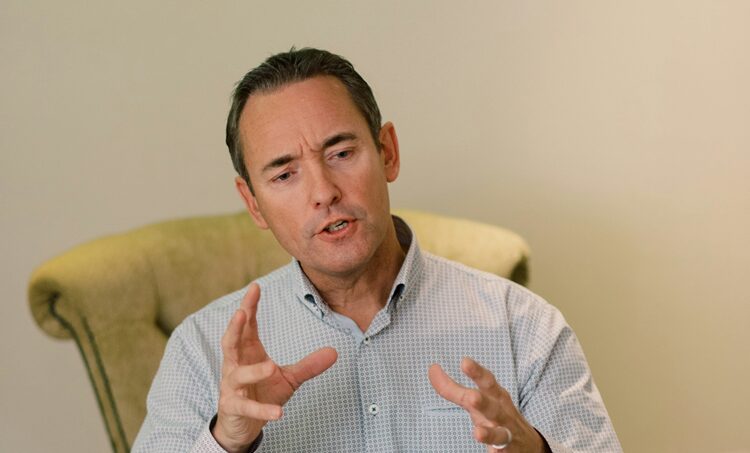If you’re aware of someone you love struggling with substance use disorder, alcoholism or any other type of addiction, you might feel helpless, unsure how you can intervene, and even resentful towards them for their risky behaviours.
At this point, it may be necessary to consider an intervention for addiction. The main aim of an intervention is to encourage your loved one to seek help for their addiction.
Intervention for addiction is an opportunity for them to accept that they have a problem and take the steps necessary for recovery, like embarking on a treatment plan.
There are many different types of interventions, and you can either put together an intervention with just friends and family, or get help from an intervention specialist.
Vernon Johnson developed ‘family intervention’ in the 1960s as a way to encourage an addicted person to seek treatment.[1]
There are many types of intervention:
- Simple intervention
- Classic intervention
- Family systems intervention
- Crisis intervention
An effective intervention will result in long-term recovery, but know that your loved one may not be ready to enter a treatment program.
Who should be present during an intervention?
Two cups of tea being poured at a drug and alcohol intervention
It can be difficult to decide who should be present during an intervention.
Everyone involved should be close to the addict and care deeply for their wellbeing – if there’s a chance that a specific person may cause them to feel defensive and angry, it may be worth leaving that person out of the intervention.
Successful intervention with a high chance of future recovery usually involves an intervention specialist.
This is a professionally trained counsellor with experience in staging interventions for people dealing with addiction – they will be able to lead the intervention and ensure that it runs smoothly.
It is highly recommended that you seek the services of an intervention specialist, as an unmanaged intervention could potentially make the situation worse. A professional will know the right things to say and will be able to deal with any resistance.
In fact, studies have shown that addicts are five times more likely to attempt recovery in a specialised rehabilitation programme when the intervention has been managed by a professional.
Below are some examples of the four to six people who could be present during an intervention:
- Family members who are concerned about their loved one
- Close friends and/or colleagues that have been directly impacted by the addict’s behaviour
- A long-term doctor or therapist
- Someone related to the addict’s faith, eg. a priest
- An intervention specialist
Successful interventions generally involve a mix of people who care for the addict, have been directly impacted by their addiction and want to help them recover.
What are the warning signs of addiction?
A man looking out of a window drinking tea before addiction intervention
It can be heartbreaking to watch someone you care for struggle with alcohol or drug addiction.
If your loved one has alcoholism or substance use disorders, they may not realise that they have a problem and therefore refuse any form of treatment.
What’s the right way to talk to someone in addiction?
Three people talking during intervention for addiction
Make sure that whenever you talk about substance use disorder or alcohol abuse, you are non-judgemental and that you don’t use shame or guilt to try to change the person.
Educate yourself about addiction and try not to use labels which are derogatory (eg. referring to a person as an ‘addict’ can be dehumanising).
Ensure you’re aware that addiction is a disease, and don’t trivialise the issue or suggest it can be overcome easily.
What happens during an intervention?

Each intervention is different, but many follow a similar format as detailed below:
- The person in addiction is directed to the intervention site without knowing the reason
- An intervention specialist will take the lead, explaining the reason for the intervention
- Members of the intervention group will take turns reading their prepared letters and expressing their concerns about the addiction, while also sharing the impact that the addict’s behaviour has had on them personally
- Treatment options will be discussed and the addict will usually be given an ultimatum. It’s important to stick to these consequences if they do not change their behaviour
It’s important to keep in mind that interventions by nature are unpredictable. Do not hesitate to contact the police or other emergency services if you feel unsafe at any point.
When should intervention be held?

There is no perfect time for an intervention to be held. Contrary to popular belief, you do not need to wait until the addict has hit rock bottom – you can step in at any time, and should do so as soon as you notice the warning signs.
It can be difficult to know when to intervene, particularly if the addict frequently denies that they have a problem. You may feel as though it’s ‘not your place’ or that their addiction is not severe enough to warrant an intervention.
If you notice the below warning signs, it may be time to stage an intervention:
- Being secretive and withdrawn
- Having problems at work or school
- Displaying frequent health issues
- Borrowing or stealing money
- Acting aggressively
- Appearing tired and fatigued
- Looking physically unwell
- Refusing to admit that they have a problem
Although an intervention may be difficult and unpleasant at the time, your actions could save a loved one’s life. Don’t hesitate – if you believe someone you love is struggling with an addiction, act now.
How to stage a successful intervention

A successful intervention is not held on a whim. It takes a considerable amount of planning and preparation to ensure that everyone is on the same page and to maximise the chances of a positive outcome.
Below are six key steps to consider when planning an intervention for someone who is struggling with an addiction:
1. Contact an intervention specialist
The first, and arguably most important step is to contact a trained intervention specialist. They will be able to manage and run the intervention in the most effective way, increasing the chances of your loved one agreeing to a treatment programme.
While intervention specialists are not essential to a successful intervention, their skills can be invaluable on the day. They will be able to diffuse the situation if the addict turns hostile, suggest options for treatment and keep everyone focused on the task at hand.
2. Form your intervention group
It’s important to choose wisely when forming your intervention group. Too many people and the addict may be completely overwhelmed, too few and it may not have enough of an impact. It’s generally recommended that four to six people is the ideal number.
Select friends and family that have been directly impacted by their addiction and ensure these are people that the addict genuinely cares about and respects. Trusted colleagues, a doctor or a member of their faith are also good options for a successful intervention group.
3. Research and prepare

Now is a good time to research as much as possible about interventions so that you are as prepared as you can be. You will learn what to say and what not to say, how the intervention will run and what to do if things don’t go as planned.
You should also ask all members of the intervention group to write a letter to the addict which will be read aloud during the intervention.
The letters should detail how each person has been affected by the addict’s behaviour, what they would like the next steps to be in terms of recovery and what will happen if they choose not to get help.
Each letter should be checked by the rest of the group to ensure that it is helpful and appropriate. Make sure to stick to these letters on the day of the intervention, and do not go off-script.
4. Decide on a time and place
When choosing a time and place for the intervention to take place, ensure that it won’t be a time that the addict is generally stressed or irritable.
It’s also best if they haven’t ingested any substances beforehand, as they will need to be as clear-headed as possible in order to really take everything in.
It can be helpful to hold an intervention first thing in the morning, or right after an incident has taken place.
Staging an intervention in a calm and neutral environment, such as an intervention specialist’s office, maybe the most practical option.
People are usually more open to ideas when discussed in a professional environment – it may seem sensible to confront the addict in their own home, but this could lead to them shutting themselves away in their bedroom.
5. Be prepared

Interventions for addiction are unpredictable and can be difficult to deal with. The addict may become aggressive and angry, say hurtful things or cry uncontrollably.
Being prepared for these potential outcomes and practicing how you will respond can help you feel more confident on the day – just remember, anything can happen during an intervention.
Setting the tone of the intervention with the other members of the group is also key to a successful intervention. Each person must keep their temper under control and stick to their prepared script, as raised voices and impromptu accusations will not be helpful in this situation.
6. Follow up
Simply staging an intervention may not be enough. It’s important to follow up with the addict in the days and weeks after an intervention has taken place in order to ensure that they are still focused and motivated to take steps towards recovery.
Being surrounded by friends and family and dealing with the shock of intervention can push an addict to agree to a recovery programme. But after a few days, this resolve can waver.
Following up with them and checking their progress is crucial to ensuring that they take those first steps towards recovery.
What are the different types of addiction intervention?

Simple intervention
- Held by friends and family members, sometimes with advice from a professional interventionist
- Set in a neutral environment
- The negative aspects of the person’s addiction are discussed
- Treatment options are discussed
Classic intervention
- A meeting prior to the event is arranged to plan the goals and functions to be laid out
- Different options and courses of action are put forward for every scenario
- An interventionist is involved in the event and helps to run the intervention
Family systems intervention
- Designed to confront family members of the addicted person who are enabling the addiction or encouraging the addiction in some way
- Can also be used for families where multiple members have problems with substance abuse
- Usually planned with help from an interventionist
Crisis intervention
- These are unplanned and occur immediately when substance abuse or alcohol abuse has resulted in a dangerous situation
- Treatment programmes should be discussed
What kind of treatment plans are available for addiction?

NHS
The NHS offers brief interventions and other resources.
You can enter an inpatient or outpatient rehab facility on the NHS, but these services are quite underfunded.
You’ll need to meet eligibility criteria, you may be waiting a long time, and you will have less choice about the kind of treatment plan you receive.
Private
Private residential and outpatient rehabs will require you to either pay for your addiction treatment yourself, or claim it on your insurance.
With this route, you’ll get more decision-making in what kind of treatments you receive, with more options available.
Private rehab costs range from budget-friendly to luxury, and you’ll receive a higher standard of accommodation, food and flexibility with a high-range rehab.
Charity funded
Charities that offer drug and alcohol support include:
What is drug and alcohol rehab?

Inpatient rehab for addiction
Inpatient rehab is a facility where you temporarily live within your facility. Here you can recover in the safety of a secure, drug and alcohol-free zone.
Outpatient rehab for addiction
Outpatient rehab involves you continuing to live within your own home, and travelling to your rehab facility for daily or weekly sessions.
How long does drug and alcohol rehab last?
Many people complete a 20-day programme, but you can go to rehab for as long as it takes you to feel secure in your sobriety.
Some people will take longer than others to recover, and it can depend on the severity of your addiction, the quality of the help you receive, and whether you have a strong support network.
How long does alcohol stay in your system for?

Depending on the person, the physical symptoms of withdrawal may begin to dissipate within two days.
However, delirium tremens is most likely to occur within 48-72 hours.
Risk of seizure is also highest in the first two days but this risk persists for more than 2 weeks.[2]
What else can I do to help a loved one addicted to drugs or alcohol?
- Offer reassurance – Be supportive of them seeking help
- Help them find out what their options are – You can use these resources to help you find local services
- Go to appointments together – This may only be necessary for their first visit
Other ways to help
- Find ways to spend quality time together – Engage in hobbies they enjoy
- Listen – If they want to talk about their thoughts and feelings, offer an ear
- Explain – Let them know gently how their alcohol or drug use is affecting you
- Encourage them to engage in peer support – Significant reduction of risk of relapse was found in clients who participated in peer support programmes[3]
Final thoughts

Interventions can be emotional, highly charged and unpredictable.
However unpleasant it may feel at the time, it’s comforting to remember that many interventions lead to the addict seeking treatment for their addiction and entering a recovery programme.
However, don’t be disheartened if your intervention attempt is unsuccessful. Your loved one is now aware of the impact that their behaviour is having on the people closest to them, and in time they may decide to seek treatment on their own.
References
[2] https://www.detoxes.net/detox-guides/alcohol-detox-withdrawal-symptoms/









